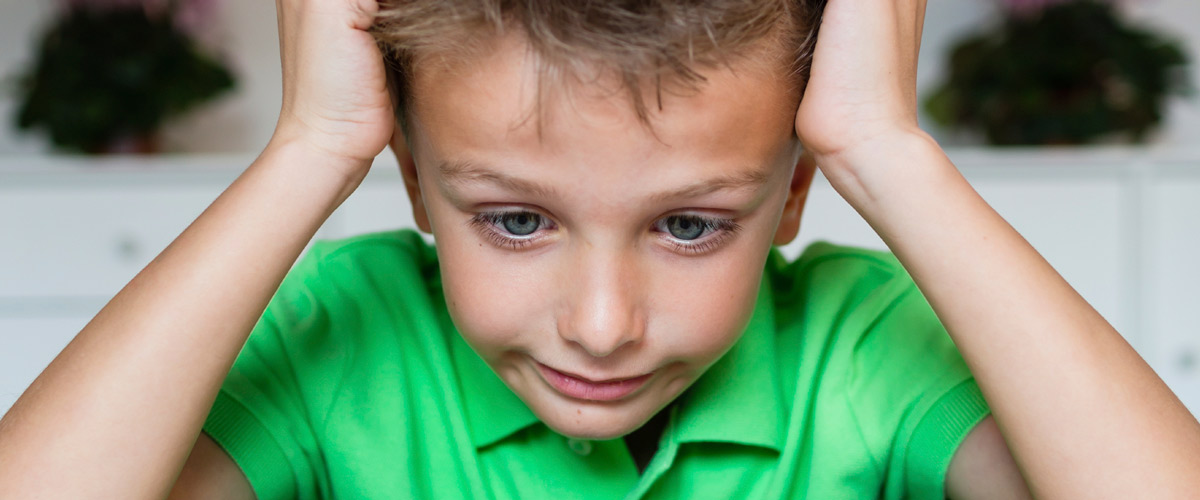The topic of ADHD can be polarizing to say the least. There are many opinions about whether or not it’s a condition, how it comes about and what can be done about it, if it has indeed manifested within a child.
 First of all, consider the acronym. Is it ADHD or ADD?
First of all, consider the acronym. Is it ADHD or ADD?
“ADHD and ADD are the same condition,” says Dr. Stephanie Marcy of Children’s Hospital Los Angeles. “The condition was known as ADD earlier but with advances in research, it was found that other behaviors fall into the ADD spectrum and the condition was renamed ADHD or Attention-Deficit/Hyperactivity Disorder.”
According to Dr. Marcy, there are three subtypes to ADHD: Hyperactive, Inattentive and a combination of the first two.
“The inattentive ones are sometimes referred to as the “spaced out” ones (they tend to zone out often) and may also be described as lazy when they are really not that,” says Dr. Marcy. “It is just that their condition makes them appear this way. Most children who have ADHD present a combination of symptoms and not just one particular symptom.”
This makes sense if one considers that ADHD is a neurodevelopmental disorder. One where brain function affects emotion, learning ability, self-control and memory. All effects that unfold as the child grows up.
The question of whether or not to medicate to treat the condition is probably one of the most contentious for parents. It’s not so cut and dry for Dr. Marcy, who believes that air tight screening processes are most important as well as therapy. If drugs can help, then they too should be considered. “I recommend a combination of medication and appropriate therapy after a thorough evaluation is done,” says Dr. Marcy. “The American Academy of Pediatrics suggests that a combination of medication and therapy be administered to manage the condition. It has been rather rare for me to refer a child immediately for medication without first initiating behavioral and parenting interventions. It’s important that therapy be done along with taking medication, as the medication stops working once the child stops taking it, but the behavioral and therapeutic interventions promote permanent change.”
If you have gotten to the point where you believe your child has ADHD, and you have chosen a path of management and healing, then you are probably also hearing a lot of misconceptions and opinions about the path you have chosen. Dr. Marcy can debunk at least three of the most common ones.
1. Diet alone will fix your child’s ADD
 “There is of course the misconception that altering a child’s diet will help curb any hyperactive tendencies,” says Dr. Marcy. “That’s why you have parents who say that their kids are not allowed any sugar at all that so they don’t become hyperactive.” Though some foods may have an effect on a child’s behavior, according to Dr. Marcy research suggests that very few children have actual sugar sensitivity, and that process is entirely separate from the behaviors caused by your child having ADHD. It’s always good to ensure your child has a healthy diet that corresponds with the 2015 national health guidelines. That doesn’t mean that a healthy diet will cure ADHD. It just means that your child is having healthy amounts of sugar and will most probably avoid other diseases such as diabetes.
“There is of course the misconception that altering a child’s diet will help curb any hyperactive tendencies,” says Dr. Marcy. “That’s why you have parents who say that their kids are not allowed any sugar at all that so they don’t become hyperactive.” Though some foods may have an effect on a child’s behavior, according to Dr. Marcy research suggests that very few children have actual sugar sensitivity, and that process is entirely separate from the behaviors caused by your child having ADHD. It’s always good to ensure your child has a healthy diet that corresponds with the 2015 national health guidelines. That doesn’t mean that a healthy diet will cure ADHD. It just means that your child is having healthy amounts of sugar and will most probably avoid other diseases such as diabetes.
2. Moms are at fault
“There’s blaming the parents for something they did while the mom was pregnant,” says Dr. Marcy. “While there are some studies that link in utero exposure to lead or alcohol, for instance, with ADHD, there is really no real reason for parents to believe it was something they did especially if they were very mindful of their health and did not take any prohibited substances while pregnant.”
3. Smarts have something to do with it
“Another misconception is that children with ADHD are not smart,” says Dr. Marcy. “This not at all true. But they may need extra support and behavioral intervention to get them to their full potential.”
“Via appropriate therapy and medication, children with ADHD can often perform just as well as children who do not have the condition.” adds Dr. Marcy.




